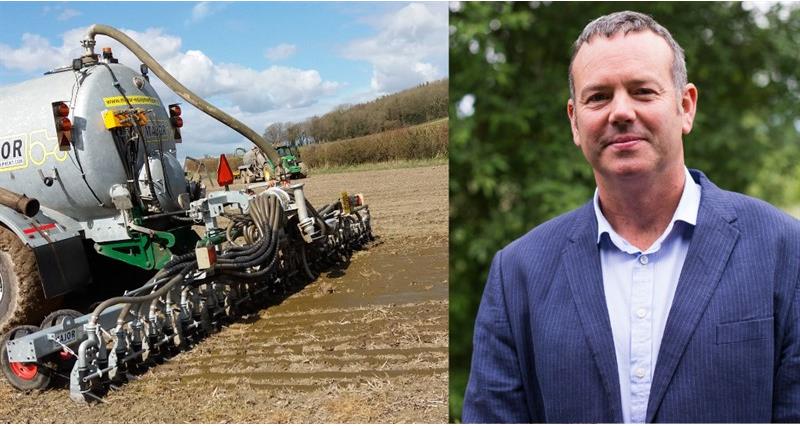Environment Forum chair Richard Bramley takes a look at the issues:
The quality of the water in our rivers and streams isn’t great. It has been much worse in the past, and great strides have been made to improve it, but there are still issues. Farms are one of the sources of these issues.
Current estimates say that around 40% of water pollution is from farms and other rural sources, which, along with water companies, puts farm practice very much in the sights of the regulators.
In order to address this, the Environment Agency (EA) put forward its ‘interpretation’ of the Farming Rules for Water, which were created in 2018. The EA’s approach has been to focus on only one aspect of organic manures – namely their nutrient content – which means that nitrogen, and to a degree, phosphorus, are the key elements of interest.
What to do with by-products
Yet in adopting this approach, the agency has fundamentally failed to recognise the huge amount of additional benefits organic manures have over their very distant manufactured cousins.
Moreover, there is the question of just what to do with all this stuff, either produced by our livestock, by our anaerobic digestion plants using our waste (often un-sold foods), or produced in every toilet in every household in the land.
Aiding regenerative agriculture
Aside from providing valuable nutrients, organic manures add organic matter to soils, they feed soil microbes (biota), they improve crop and grass health and production, and importantly recycle nutrients. The help create a circular system that doesn’t need supplementing as much with manufactured fertilisers via the carbon-intensive Haber-Bosch process, or some form of mining in a far-flung land.
In short, they contribute to biodiversity, soil health, resilience to climate extremes and the rural economy. They are a key element of sustainable production and the much-favoured ‘regenerative’ approach to agriculture.
Yet, this autumn, there are now huge questions on the use of these valuable products.
Frustrations with the Environment Agency
Discussions on the interpretation of Farming Rules for Water have been ongoing between the NFU and the EA now for months. We have made the obvious and some less obvious points. We have laid bare the likely impacts if this ‚Äòinterpretation‚Äô is to be seen through, and these impacts are also seen in the¬ÝAHDB report, which demonstrates the potential effects on farms' functionality and economics, as well as the environmental impacts.
High-level letters have been written to the Secretary of State and other ministers. As I write, these letters haven’t received a response.
Many meetings have been had and in the end the EA said that a Regulatory Position Statement would be prepared to provide clarity and offer guidance to the very unclear situation.
That was published on Tuesday 3 August with no proper consultation with industry regarding it’s practicality, and provides very little clarity.
We need more time
Organic manures are of intrinsic importance to farm production and waste management. They are valuable and need to be treated as such. They need to be used in the best way to avoid impact on water quality, something that most farms have been working on for many years.
More investment is needed, more support and guidance, but above all, more time for this transition to continue.
We must stop relying on imports
I hope that our imported competitors pay as much attention to their production as we do here – and on that subject we cannot escape the government focus on ‘outsourcing’ our food supply.
We have a worrying trend of increasing reliance on food from elsewhere in the globe, often from countries with considerably more environmental challenges. Bringing food here, passing through our livestock, ourselves, or worse still throwing it straight in the bin, will produce effluent waste. And this will need a home.
A more UK-focused, circular nutrient system is the answer, but this will take time. In the meantime, the clock is ticking and for now normal good practice should resume.
